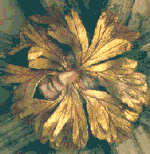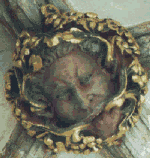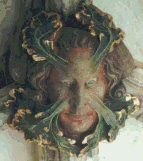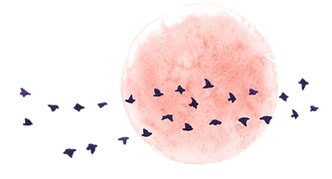Positive Body Awareness
Andrew Cook MSc RCST
Transformational Bodywork
 The Green Man
The Green Man

The Green Man is an ancient theme, taken up by the early Christian Church as a symbol of the resurrection of Christ. Many of the great Cathedrals of Europe contain images of the Green Man - the three examples shown here are from the cloisters of Norwich Cathedral, England.
More generally, the Green Man is a powerful symbol of regeneration, death and rebirth, and the inevitable power of life to continue regardless of circumstances. The nature of the new green shoots springing from the face and orifices of the (dead?) male human head also give reference to the turning of the seasons, and the movement of life within the cycle of the year.

Some Green Man faces are fierce, and reflect the intensity with which life is taking them over. It is almost as if the struggle to live and love has become so intense that life itself has intervened and decided the necessary direction of growth, and the Green man is left grimacing and raging as life carries him and grows through him in directions he is trying to pull away from. He is trying to be a man (ego), and life is growing through his eyes and mouth and nostrils, transforming him into what he is struggling against.
Some of the green Man faces are relaxed, and even smiling. He knows that the life that grows out of him is in the correct order of things - he is here precisely because this life must come from him, in the way in which it must come. His death is part of the growing that all life springs from. Whether at peace or in a rage, the shoots continue to grow, and he becomes part of the forest growing from his old self/body.

Everything that he was, now becomes the compost: the food which sustains everything he will become. The Anger and Grief feed his spirit, and with Laughter and Joy, Fear and Pain all become meaningful only as things which assit his growth. Life begets life. Life demands to be lived. It comes out of us, even if we don't realise it is there. It is fierce, joyful, and eventually it kills us off to make room for the new roll of surf on the beach. Our children are the next wave on the shore. And as the froth of their joy is breaking on the beaches of the world, their children follow. The waves are made from the waters that have crashed on these shores for hundreds of millions of years. Proteaea, sponges, trees and plants with shapes you have never seen in your garden, barnacles, fish, the first hominid - they are all there.
The Green Man feels this ocean in his bones. And as he returns to the Earth - his eyes do not look back at the soil, but remain fixed on the sunlit sky above.
Recollections of childhood
Let us without worrying about it,
let the destiny of the planet accomplish itself.
Our lamentations will not affect it,
and our ill-humour will be misplaced.
The Universe does not know discouragement,
it renews every task that has miscarried,
every check leaves it young, alert, and full of illusions.
Courage, Courage!
by Ernest Renan (1883)
quoted by Nirad Chaudhuri at 92 years old
Wage Peace!
Wage Peace with your breath
Breathe in firemen and rubble,
Breathe out whole buildings, and flocks of redwing blackbirds.
Breathe in terrorists and breathe out sleeping children, an dfreshly mown fields.
Breathe in confusion and breathe out maple trees.
Breathe in the fallen. And breathe out lifelong friendships intact.
Wage peace with your listening;
Hearing sirens, pray out loud.
Remember your tools: Flower seeds, clothes pins, clean rivers.
Make soup. PLay music.
Learn the word for "Thankyou" in three languages.
Learn to knit, and make a hat.
Think of chaos as dancing raspberries.
Imagine grief as the outbreath of beauty.
Or the gesture of fish : swim for the other side.
Wage peace.
Never has teh world seemed so fresh and precious.
Have a cup of tea and rejoice.
Act as if armistice has already arrived.
Dont waste another minute.
Probably by Judyth Hill
Dear Life...
Dear Life, please hurry...
Grind me to crumbles
Between the palms of your hands.
Shove me into a heap
In your cupped hand,
And lift me close to your mouth.
Blow me in among the trees,
Down across all the upturned eyes of life;
Tracheaea and seed leaves.
Its so cold closer to the moon,
I'm so in love with the Earth.
by Sandro Key-Åberg (Transl. Lennart Bruce)




<< ¦ Top ¦ Menu ¦ Front page ¦ Body-Mind ¦ CST/Clinic ¦ Contact ¦ Site Map ¦ Search
all content © Andrew Cook, Norwich UK, 2021



